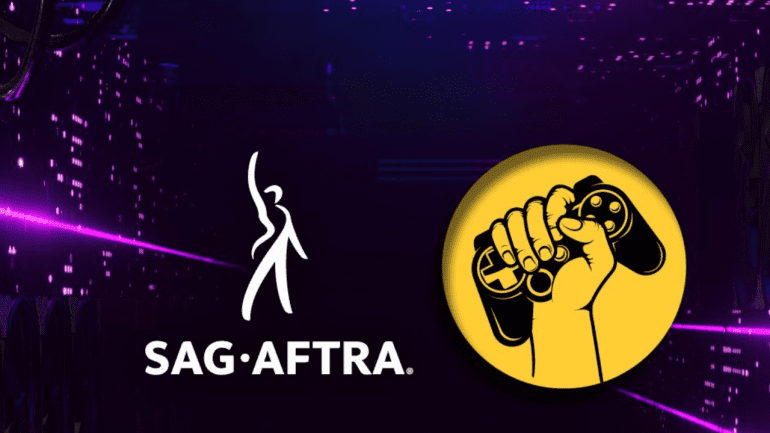- SAG-AFTRA video game actors will strike starting Friday due to unresolved AI protection issues.
- Negotiations with major game studios, including Activision and Electronic Arts, failed after 18 months.
- Studios reached consensus on most proposals but did not provide clear AI protection clauses.
- The strike follows a prior 11-month strike in 2016 and an expired contract without AI provisions.
- Union leaders criticize studios for not learning from previous industry negotiations.
- AI voice replication concerns have intensified, with actors worried about replacement by AI models.
- SAG-AFTRA had previously secured a deal with Replica Studios for digital voice protections.
- The strike highlights tensions between creative professionals and technology developers.
Main AI News:
Video game actors, represented by the Screen Actors Guild-American Federation of Television and Radio Artists (SAG-AFTRA), have decided to strike starting Friday due to a failure in securing adequate artificial intelligence (AI) protections from video game developers. This strike follows protracted negotiations that have been ongoing for more than a year and a half with major video game studios, including Activision Productions Studios LLC, Blindlight LLC, Disney Character Voices International Inc., Electronic Arts Inc., Formosa Interactive Inc., VoiceWorks Productions LLC, and Warner Bros Games.
The core issue driving this labor action is the growing concern over generative AI’s potential to replace human performers. This topic was a major contention point during last year’s Hollywood strikes, where actors and screenwriters successfully reached agreements with film studios over AI-related issues. In contrast, video game performers have yet to achieve a similar resolution.
SAG-AFTRA has reported that while agreements have been reached on several significant issues, such as wage increases and safety provisions, the studios have not provided clear and enforceable assurances regarding AI protection for performers. The union emphasizes that without a definitive agreement on these protections, which would ensure that performers’ voices and likenesses are not exploited by AI without proper compensation and consent, the strike action is necessary.
A spokesperson for the video game producers expressed disappointment at the union’s decision, stating that the studios were on the verge of finalizing a deal. The spokesperson highlighted that the group had already reached consensus on 24 out of 25 proposals, which included historic wage increases and enhanced safety measures. The proposed agreement was said to offer meaningful AI protections, including stipulations for performer consent and fair compensation.
The last interactive contract between SAG-AFTRA and video game developers expired in November 2022 and lacked provisions for AI protections. The union had previously experienced a significant strike in October 2016, which lasted over 11 months, indicating a history of strong action in the face of unresolved labor issues.
SAG-AFTRA National Executive Director Duncan Crabtree-Ireland criticized the studios for not adapting to the lessons learned from the film industry’s recent negotiations. He underscored the union’s commitment to demanding fair treatment and adequate AI protections for its members, who play crucial roles in video game development, from voice acting to full performance motion capture and digital likenesses.
The union had authorized the strike in September, anticipating that negotiations would fall through. Notably, SAG-AFTRA had previously secured a deal with Replica Studios Inc. in January to protect the licensing of digitally replicated voices, showing the union’s proactive approach to AI-related concerns.
AI voice replication technology, which has become increasingly prevalent in social media, has raised alarms among actors and other creatives. The use of AI-generated voiceovers in memes and other online content has sparked criticism from some actors, such as Roger Clark, known for his role in “Red Dead Redemption 2,” who has publicly condemned the unauthorized use of his voice by AI on social media.
Union leaders, as reported by The Associated Press, have clarified that their stance is not entirely “anti-AI,” but they are deeply concerned about the unchecked application of this technology. Their primary fear is that game developers might use performers’ voices and likenesses to train AI models, potentially leading to their replacement in the industry.
SAG-AFTRA Chief Contracts Officer Ray Rodriguez emphasized that the strike represents a “last resort” for the union’s members. He noted that the union had not received comparable protections to those in the previous replica deal, which contributed to the decision to strike. Video game performer Zeke Alton, a member of the negotiating team, also expressed frustration over the lack of adequate future protections.
Conclusion:
The impending strike by video game actors underscores a significant challenge in the entertainment industry regarding the integration of AI. The failure to secure comprehensive AI protections reflects broader concerns about the role of artificial intelligence in potentially displacing human talent. This dispute may impact the gaming industry by causing delays in game production and highlighting the need for clearer agreements on AI use. It also signals to other sectors that labor negotiations around AI are becoming increasingly crucial, potentially influencing how similar discussions unfold across various industries.

